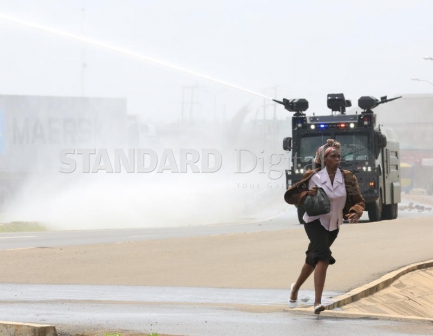×
The Standard e-Paper
Kenya’s Boldest Voice

During the violence that followed the announcement of the August 8 presidential election results, 65 women, three men and three children were sexually violated by police, according to Human Rights Watch.
After months of suffering in silence, some of the women shared their harrowing tales with The Standard.